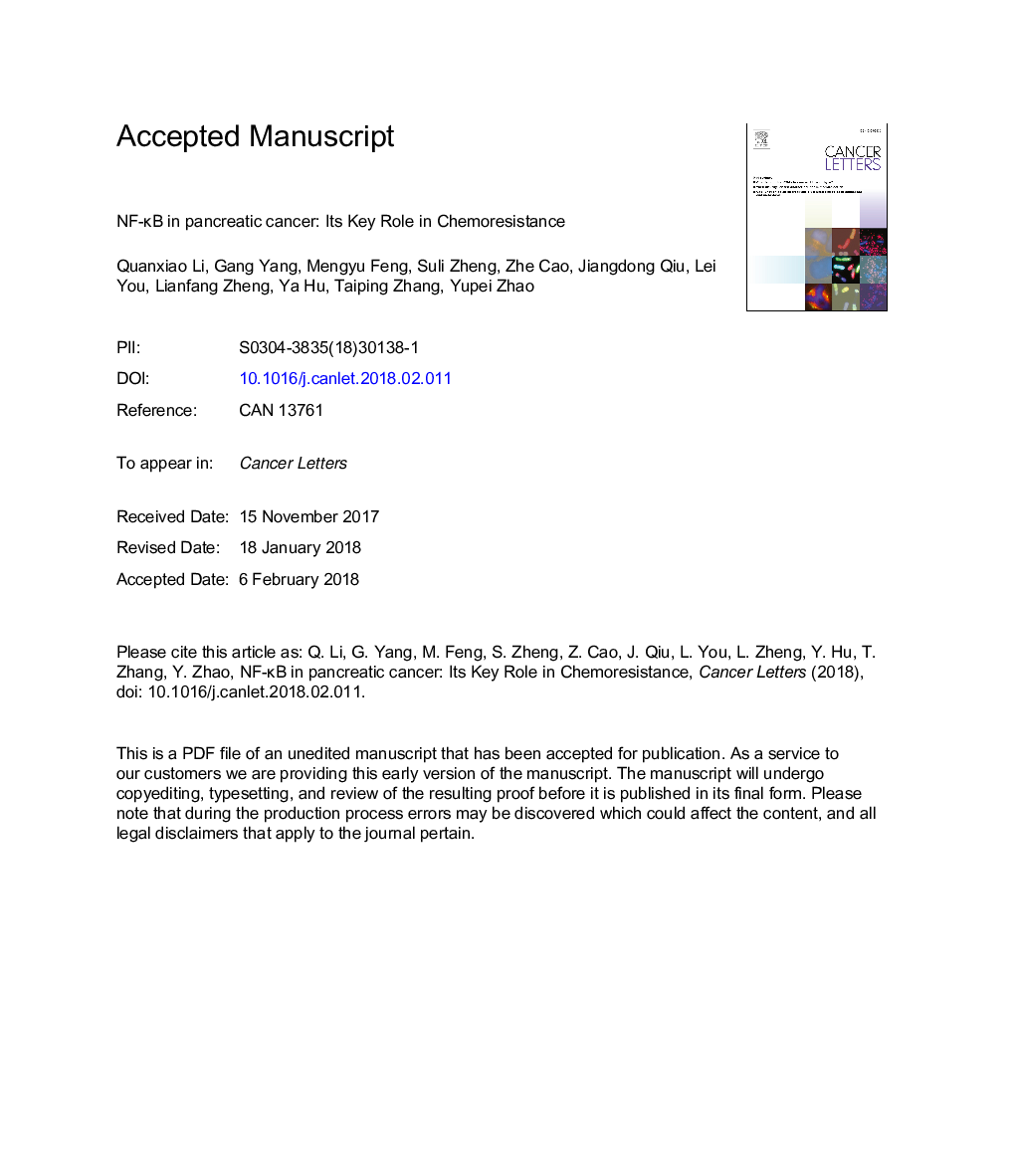| Article ID | Journal | Published Year | Pages | File Type |
|---|---|---|---|---|
| 8434592 | Cancer Letters | 2018 | 26 Pages |
Abstract
Pancreatic cancer is considered a lethal disease with a high mortality and an extremely low five-year survival rate. Chemotherapy plays a pivotal role in pancreatic cancer treatment both in an adjuvant setting after complete resection and in the case of unresectable metastatic disease. However, none of the available combination chemotherapy regimens has resulted in satisfactory survival outcomes. Recent studies have revealed that both constitutive and induced activation of nuclear factor kappa B (NF-κB) in pancreatic cancer cells are closely associated with cell proliferation, invasion, anti-apoptosis, inflammation, angiogenesis and chemotherapeutic resistance. Therefore, NF-κB inhibitors in combination with cytotoxic compounds have been reported as novel agents that improve chemotherapy sensitivity in pancreatic cancer. In this review, we outline recent developments in the understanding of the role of the NF-κB signaling pathway and its associated genes in the progression of pancreatic cancer and highlight some potentially effective strategies for pancreatic cancer treatment.
Related Topics
Life Sciences
Biochemistry, Genetics and Molecular Biology
Cancer Research
Authors
Quanxiao Li, Gang Yang, Mengyu Feng, Suli Zheng, Zhe Cao, Jiangdong Qiu, Lei You, Lianfang Zheng, Ya Hu, Taiping Zhang, Yupei Zhao,
